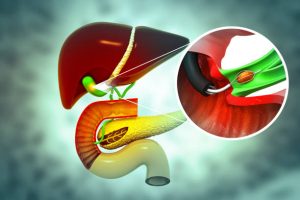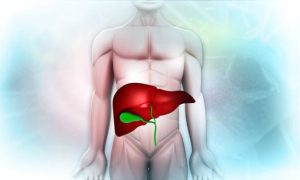
Portrait of woman who is coughing. Respiratory tract disease concept
Burning Mouth Syndrome (BMS)
What is Burning Mouth Syndrome?
Burning Mouth Syndrome (BMS) is a chronic condition characterized by a burning sensation in the mouth, often affecting the tongue, lips, gums, palate, or the entire mouth. The exact cause is unclear, and it typically occurs without any visible abnormalities or specific dental issues. BMS can be classified as primary (idiopathic) or secondary (due to an underlying cause).
Types of Burning Mouth Syndrome:
- Primary (Idiopathic) BMS: No identifiable underlying medical or dental condition.
- Secondary BMS: Linked to other conditions such as nutritional deficiencies, allergies, medications, or oral infections.
Main Causes of Burning Mouth Syndrome:
- Nutritional Deficiencies: Lack of vitamin B12, iron, folate, or zinc.
- Hormonal Changes: Commonly seen in postmenopausal women due to hormonal imbalances.
- Allergies: To dental materials, foods, or oral care products.
- Dry Mouth (Xerostomia): Often caused by medications, dehydration, or autoimmune conditions like Sjogren’s syndrome.
- Gastroesophageal Reflux Disease (GERD): Acid reflux can irritate the mouth.
- Medications: Certain medications, such as those for high blood pressure or depression, may cause BMS.
- Nerve Damage: Altered nerve function or damage affecting taste and pain perception.
- Psychological Factors: Stress, anxiety, and depression can contribute to the onset or exacerbation of symptoms.
Signs and Symptoms of Burning Mouth Syndrome:
- A burning or scalding sensation in the mouth, particularly the tongue.
- Dry mouth or a bitter or metallic taste.
- Increased thirst.
- Sensitivity to spicy or acidic foods.
- Altered taste perception (dysgeusia).
- Symptoms may worsen as the day progresses, with little or no discomfort in the morning.
Risk Factors for Burning Mouth Syndrome:
- Being a woman, particularly postmenopausal.
- Having a history of anxiety, depression, or chronic stress.
- Presence of autoimmune conditions (e.g., Sjogren’s syndrome).
- Recent dental procedures or use of oral appliances.
- Use of medications like ACE inhibitors or antidepressants.
How to Prevent Burning Mouth Syndrome:
- Maintain a balanced diet to prevent nutritional deficiencies.
- Stay hydrated to prevent dry mouth.
- Manage stress through relaxation techniques such as yoga or meditation.
- Avoid tobacco, excessive alcohol, and spicy or acidic foods that can irritate the mouth.
- Practice good oral hygiene but avoid toothpaste or mouthwash with strong ingredients that may cause irritation.
How Burning Mouth Syndrome is Diagnosed:
- Medical and Dental History: A comprehensive history to rule out other conditions.
- Physical Examination: To check for any visible issues in the mouth.
- Blood Tests: To detect nutritional deficiencies, hormonal imbalances, or underlying conditions.
- Allergy Tests: To identify any potential allergic reactions to dental materials or foods.
- Salivary Flow Test: To check for dry mouth or other salivary gland issues.
- Oral Swabs or Biopsies: In some cases, a biopsy may be necessary to rule out infections or other diseases.
Treatment for Burning Mouth Syndrome:
- Nutritional Supplements: If deficiencies in B vitamins, iron, or zinc are identified.
- Medications:
- Topical Pain Relievers: Anesthetics like lidocaine or capsaicin rinses may help reduce pain.
- Antidepressants or Anti-anxiety Medications: To manage underlying psychological factors.
- Saliva Substitutes: To relieve dry mouth.
- Alpha-lipoic Acid: An antioxidant that may help improve nerve function.
- Cognitive Behavioral Therapy (CBT): To manage stress, anxiety, or depression that may contribute to symptoms.
- Management of Underlying Conditions: If BMS is secondary to another issue like GERD or dry mouth, treating the root cause may alleviate symptoms.
Home Remedies for Burning Mouth Syndrome:
- Cold Water or Ice Chips: Sipping cold water or sucking on ice chips can temporarily soothe burning sensations.
- Aloe Vera Gel: Applying aloe vera gel to the mouth can help soothe irritation.
- Honey: Known for its antimicrobial and healing properties, honey can be applied to the affected area.
- Chewing Sugar-Free Gum: Stimulates saliva production and may ease dry mouth.
- Baking Soda Rinse: A solution of baking soda and water can help balance mouth pH and relieve discomfort.
Ayurvedic Medicine to Cure Burning Mouth Syndrome:
- Triphala: Known for its anti-inflammatory and healing properties, triphala can help soothe oral inflammation.
- Aloe Vera: Drinking aloe vera juice or applying the gel in the mouth can relieve burning sensations.
- Licorice Root (Yashtimadhu): Used in Ayurveda for its healing and soothing properties.
- Ashwagandha: Helps manage stress, which can alleviate symptoms of BMS.
- Brahmi (Bacopa Monnieri): Helps reduce anxiety and stress, which can aggravate BMS.
Precautions:
- Avoid irritating substances like tobacco, spicy foods, or acidic beverages.
- Use toothpaste and mouthwash designed for sensitive mouths.
- Stay hydrated and avoid excessive caffeine or alcohol consumption.
- Manage any underlying medical or psychological conditions that may be contributing to symptoms.
Self-Care Tips:
- Opt for bland foods that won’t aggravate the burning sensation.
- Practice stress management techniques such as deep breathing exercises or mindfulness.
- Keep a symptom diary to track triggers and flare-ups.
- Use a humidifier at home to avoid dry air, which can worsen symptoms.
Conclusion:
Burning Mouth Syndrome can significantly impact quality of life due to persistent discomfort. While the cause of primary BMS is often unknown, proper diagnosis and treatment can help manage the symptoms. By addressing nutritional deficiencies, managing stress, and maintaining oral health, you can find relief and improve daily functioning.
Disclaimer:
The information provided here is for educational purposes only and should not be taken as medical advice. Always consult with a healthcare professional for a proper diagnosis and treatment plan if you are experiencing symptoms of Burning Mouth Syndrome.
Additional Tips:
- Try relaxation techniques such as yoga, meditation, or tai chi to manage stress levels.
- Consider switching to mild toothpaste that does not contain sodium lauryl sulfate, which can irritate the mouth.
- Regular dental checkups are essential to rule out any other oral conditions that may mimic BMS symptoms.








